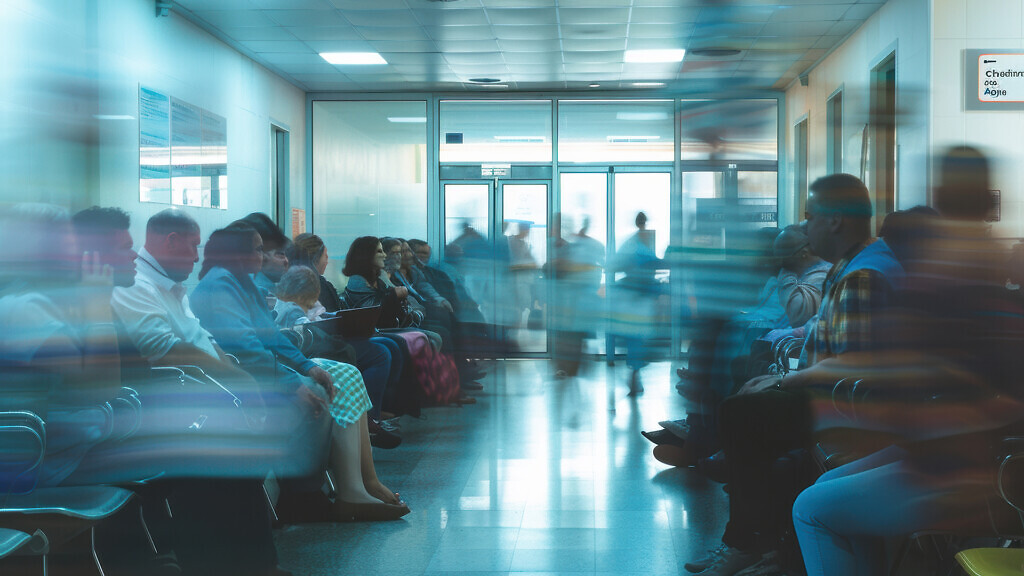‘Going private’ for healthcare is becoming the new normal. David Hare shows why…
Readers will know that much is written about private healthcare in this country. But, more often than not, it is done so in a sensationalised manner.
Articles look at whether it is leading to a ‘two tier’ healthcare system, whether the sector is ‘stealing doctors’ or ‘undermining the NHS’ in pursuit of an American-style system of care.
But given that we have a £10-billion-plus industry which serves millions of people every year, surprisingly little is actually known about what private patients, and indeed the public, think of private healthcare.
The Independent Healthcare Providers Network (IHPN) has therefore decided to commission annual research into attitudes around private healthcare:
- What people think about it
- What services do they use
- What do they understand about it
This is not only to help us understand more about the market trends and why more people are choosing private healthcare, but also to help the sector to continue to improve the service it offers to patients and consumers, particularly in terms of helping people understand and navigate the system.
This autumn we were therefore delighted to launch Going Private 2024 – the second in our series – which contained some interesting results.
The new normal
What came across most in the results is that paying for healthcare is very much becoming ‘the new normal’, with a majority of the public – almost seven in ten – saying they would consider using private healthcare.
Looking at people’s more immediate needs, over one-third of the public (34%) said they would pay for treatment in the next 12 months if they needed it, which rises to almost half (44%) of 25- to 34-year-olds who expect to use private healthcare in the coming year.
This openness to using private healthcare among young people is a theme that was apparent in our 2023 report and shows no sign of waning.

Younger people positive
Our results found that younger people between 18 and 34 years of age are generally more positive about the private health sector; more willing to consider using it; more likely to have used the sector; and more likely to have accessed private GP services.
Indeed, while overall, 27% of those who have used private healthcare said they had used it for an appointment with a private GP, this rate increased even more dramatically in the younger age groups.
In 2024, more than half (54%) of all 18- to 24-year-olds who had used private healthcare had accessed GP appointments privately, with the rate of usage dropping off as the age of respondents goes up – with 10% of those aged 65 or more having used private GPs.
Desire for convenience
There is likely to be many reasons for this, but young people’s general desire for convenience undoubtedly extends to health services, so it’s not surprising that quick and flexible access to private GP services – both virtually and in person – and which have a relatively low price point are seen as key drivers.
Looking more broadly at why people use private healthcare, the most common single reason remains the difficulty with accessing NHS care – nearly half of people (45%) cited this as a factor in their decision to use private healthcare.
Others choose private healthcare because they think that the quality of care may be higher. Almost one in five (19%) say that they can get more personalised care in the private healthcare system, with 18% saying that they think that the care available privately is higher quality.
Interestingly, one-in-five people said that they used private healthcare because they have private health insurance, either paid for by themselves or through their work. And this was backed up by the significant rise in the proportion of people using private medical insurance (PMI).
Of those that have used private healthcare, six in ten (58%) said they paid through private medical insurance, compared with under half (49%) in 2023.
Perhaps not surprisingly, 55% of respondents indicated that they would be somewhat or much more likely to apply for a job if it came with private health cover.
Affordability factor
Affordability is, of course, a key issue when it comes to using private healthcare, and although most people (67%) would consider paying for treatment, we asked people who said they would not consider using private healthcare to tell us why (17% of the public gave this answer).
By far the most common reason is affordability. Sixty-four per cent of people said that they ‘could never afford it’, rising to above 71% among DE social grades and those on the lowest incomes.
But delving into this issue more closely, we found that the availability of payment plans – allowing self-pay patients to spread the cost of treatment – would also make people more likely to consider accessing private healthcare if they had previously assumed they could not afford it.

Spread the cost
Some 42% of respondents said they would be more likely to consider using private healthcare if they could spread the cost of treatments.
Of course, this will come as no surprise to readers of Independent Practitioner Today and those working in the sector, but, overall, people are very positive about the private healthcare sector.
Regardless of whether they used insurance or self-pay, the vast majority (88%) of people who have used private healthcare considered it worth the expense. Six-in-ten people (59%) feel very or quite positive about private healthcare – up from 51% last year – with only 8% having a negative attitude.
This positive sentiment increases significantly among people who have used private healthcare, with 78% of people who have used private healthcare feeling positive about the sector.
Looking ahead, while there is much to be positive about, the research does show there is huge scope to better inform the public about private healthcare.
Educating the public
More than four-in-ten people (42%) said they are not very familiar or not familiar at all with the range of treatments and services available, with likewise 43% saying they are not very familiar or not familiar at all with how to access private healthcare.
Again, half of people (49%) are not familiar with how to pay for private healthcare, such as through insurance or self-pay.
And even of those people who would be open to using private healthcare but have not used it in the past only around half (48%) said they would know where to go for more information.
Educating the public on how private healthcare works is something IHPN will be looking to work on in the coming months and years – helping to further normalise private healthcare so growing numbers can benefit from the high-quality, accessible care the sector provides.
David Hare is the chief executive of the Independent Healthcare Providers Network.



